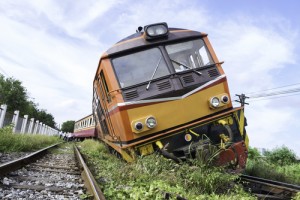There are several ways to travel from one location to another. Some people prefer driving a car while others would instead take the train. If you have been in an accident on the train or in a car, don’t hesitate to contact Union City Personal Injury Attorney at any time if you have questions about either type of accident that may require legal assistance.
It is vital that you understand your rights and what options may be available for seeking compensation. This article will discuss some of the key differences between these two types of accidents and how they can affect your case if you decide to file a lawsuit against someone else for negligence or carelessness.
Difference Between Train vs. Car Accidents
Two of the most common types of accidents that occur on trains are collisions and derailments. Collisions usually happen when another vehicle is either stuck on train tracks or has failed to stop before coming into contact with an incoming train. Derailment tends to be more complicated than a collision because it can involve multiple track parts and other issues that may not be immediately apparent.
Train accidents can result in several different injuries and damage to property, depending on the circumstances surrounding how it happened. One of the most common types of train vs. car accident injuries is when someone suffers from burns because they were either exposed to fire or hot steam coming out of one of the engines at the time of the accident.
Other injuries can include broken bones, lacerations to the face and head, or back injuries because you were thrown around during impact.
Factors Leading up to Train Accidents
Train accidents tend to be more complicated than car accidents because there are so many different factors involved. These include:
- The speed of the train
- How fast the other vehicle was traveling
- Visibility on both sides throughout the entire trip
- Whether or not another object caused either one to collide with the other
The most important thing that separates train vs. car accidents from one another is the fact that it can be difficult for passengers or pedestrians involved in a collision with a train because they have no way of stopping once they realize there is an oncoming vehicle. Car accidents, however, usually involve two moving vehicles, which means speed, visibility, and road conditions are all taken into account.
Contact an Attorney
Train accidents can be either criminal or civil, which means they will fall under federal and state law scope, depending on where you were traveling at the time of your accident. On average, there are approximately 500 trains versus car collisions each year involving criminal charges and fines.
Train versus car accidents caused by negligence, recklessness, or carelessness on the part of another driver can lead to severe injuries and medical bills, which may require extensive treatment such as surgery for you to recover completely from your injury.
When this is the case, it will be necessary for you to seek compensation from the appropriate party to cover your medical bills and any property damage that may have been affected.
